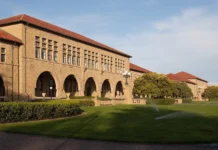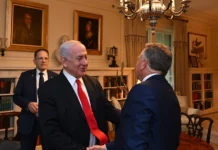In the wake of the multiple Arab uprisings since the Bouazizi heroic act of self-immolation with fire in Tunisia in 2010, rather than bask in democracy and welfare, the Arab people are enduring insecurity, lack of stability, joblessness, bankruptcy, lack of freedom and hard times. Lots of them are even regretting the good old dictatorships that secured them daily bread, safety and stability.
In Meidan Tahrir, during the second Egyptian uprising, initiated by the military and seconded by secular and nationalist forces against the, then, President Morsy and his Muslim Brotherhood party, there were lots of placards lamenting Mubarek’s reign, alongside with his photos in military garb.
Today, the streets of Cairo are unsafe; Alexandria that was until yesterday the city where religions coexisted peacefully is no more, in the countryside at nightfall people bolt their doors and hope for the best and violent Islamist armed groups terrorize the Sinai region. Tourism that was until recently one of the biggest money-earner sectors is practically dead, tourist guides are lamenting their bad luck at the gates of Jizzah pyramids: “prosperity is gone with Mubarek, today we hardly survive from money remittances from family expatriates in the Gulf, if something similar happens there, we die.” Egypt, the most important and powerful country of the MENA region is on the brink of chaos; unless….
In Yemen, insecurity is such that nobody dares go outside of Sanaa without a Kalachinkov machine gun to defend oneself. People prefer to travel in convoys escorted by armed militias, since tribal strife is back and is encouraged by Iran-backed shia Houthis, who thrive in insecurity. The ex-communist south abhors central government and would not mind breaking away, though they know deep down that it is not feasible in these times. The homegrown Qaida die-hards are back in service recruiting poor rural Yemenis and brainwashing them for future terrorist attacks, not fearing probable US deadly drone strikes. “Dying in Jihad is an honor and a guarantee to have access to Eden,” they profess in a condescending manner. For them, Islam will prevail and America will collapse and take with it its Arab lackeys. Civil war has only brought misery and death and Saudi and Gulf war on Houthis is a horrible nightmare endured by civilians and mostly children. Yemen is poised for more deep trouble, unless….
In Syria, not happy with shooting his people who disagree with him, Assad has gassed them, too, as if to say: “if I have to go to hell, then you go first before me.” The world is watching this drama unfold without been able to punish him because the Russian bear, his ally alongside autocratic Iran, is making frightening groans that scare the hell out of the democratic world. In Syria, Assad is very bad news for the country but so is the opposition that is fragmented, tribal and might lead, consequently, to the Libyan scenario, after the fall of the dictator. Whatever happens, democracy will not occur tomorrow in this country, unless…
 Frustration fueled the Arab Spring
Frustration fueled the Arab Spring
In Libya, the situation is so opaque, that nobody knows what is happening inside. One thing is sure, the militias reign supreme and the elected and internationally-recognized government of Tripoli would not or cannot disarm them. They control the country, indeed, and as such are able to sell oil to foreign companies without government authorization. In the East, the megalomaniac Marshall Haftar, wants to rid the country of Islamists even if he has to scorch all of Libya. In the south, the tribes are grooming Saif al-Islam Qaddafi to become the next guide, hopefully democratic, to unite the country because today, Libya is many countries/tribes in one, waiting for the propitious time to start a new cycle of violence, unless…
In Algeria, the Generals, de facto power behind the throne, do not want to relinquish power and go back to their barracks. They have fielded, through presidential elections boycotted by the opposition and the majority of the population, a new president at their beck and call: Tebboune and are viciously making use of the COVID-19 lockdown to stifle the popular uprising known as hirak, to stay in power in spite of the fact that the country whose economy is 90% reliant on oil revenues is basically bankrupt.
The Algerians, today, however, regret bitterly that they did not emulate their neighbor Tunisia in its revolution against dictatorship in 2011 that kick started the Arab Spring because, actually, they were not ready to give up their social peace and could not forget the horrors they endured both at the hands of the Islamists and the army during the civil war decade 1990-1998, known as the black decade. The government bribed the people into submission through subsidizing staple foods, medicine, transportation, housing, etc. almost everything, when it had sufficient windfall money from oil, today because the funds are drying up, the subsidies are suspended and, as a result, people want democracy and freedom, if they cannot secure daily bread. Algeria, indeed, has escaped unscathed the Arab uprising because, also, of strict policing and use of force, but now the people are rejecting strongly the army, the de facto power and its puppet presidents. The fire of the present uprising (hirak) will not be put down easily, and Algeria will suffer, unless…
The Arab monarchies have so far been spared by the tumultuous uprisings but not for long, because Act II of this political tsunami will sweep them out of their feet, undoubtedly, unless they change their ways and usher in an era of democracy instead of the present tribal/patriarchal governance that is the reason behind current Arab proverbial impotency.
These monarchies basically divide into two groups:
- Traditional monarchies deriving their legitimacy from tribal allegiance and state patriarchy, like in Jordan and historical and religious legitimacy like in the case of Morocco; and
- Oil monarchies owing their existence and survival to abundant petro-dollars. These are the Gulf States.
Morocco and Jordan have, also, been swept by uprisings fever but, so far, they have resisted because they prompted, in due time, changes and reforms, though not too far-fetching, yet important and restarting the incremental political process, not to say dream, leading towards a democratic design, hopefully.
In the full swing of the Arab uprisings in 2011, Mohammed VI, in a nimble and calculated move, proposed a constitution revamp, ceding some of his extensive powers to the Head of the Government but retaining enough to act as a guarantor of national unity and as a political arbiter. The credibility capital of this monarch is twofold: firstly, historical legitimacy; the Alaouite dynasty is four centuries old and the Moroccan monarchical system itself is 14 centuries; and secondly, he is the head of the Islamic religious establishment: Commander of the Faithful (Amîr al-mu’minîn), a position that gives him tremendous symbolic power among his people and protects him from sedition.
Even when the uprising winds started blowing in the direction of Morocco, and the Mouvement du 20 février took to the streets to denounce corruption, nepotism, power abuse of the officials in the vicinity of the monarch, they did not call for a regime change but just some sort of devolution of power in incremental fashion: they wanted a parliamentary monarchy instead of the executive one in place today. The strength of the Moroccan monarchy lies on its flexibility, power of cooptation and horse sense in politics.
 Algerian Popular Uprising known as Hirak
Algerian Popular Uprising known as Hirak
In spite of the sympathy capital it enjoys, the Moroccan monarchy has to renew itself, in the long run; cut on the absurd protocol, reduce the so-called “shadow cabinet” of advisors and curtail their extensive power, and make all corrupt officials stand trial, no matter how close they are to the throne, to establish universal accountability in the country, once for all and replenish, in time, the legitimacy capital of the monarchy.
In Jordan, unlike in Morocco, the monarchy though it adopts a modern profile, is, in spite of the tribal allegiance and support, on a shaky ground because it lacks historical depth and consequently historical legitimacy. It is true the Jordanians like and respect their monarch but like, in the case of Morocco, monarchy has to renew itself, at once, before it is too late.
The oil monarchies of the Gulf do, seemingly, enjoy stability and security but that is all artificial. At the height of the Arab uprisings, the governments fearing any form of backlash literally embarked on distributing cash to the population, to buy allegiance and time. In the short run this will work, and it did but in the long run once the money is gone sentiments will change for sure and desire for democracy and freedom will surge. In this time of pandemic and uncertainty, cash bonanza of the oil industry is going dangerously low threatening the stability of the Gulf monarchies especially that some of them are introducing tax legislation for VAT and other taxes on consumer goods, property, income, wealth, etc. moves unheard of before. Next, if COVID-19 economic depression lasts, they will get rid of foreign labor and will have to face doing the work themselves or got totally bankrupt. Not to forget, of course, that hegemonic Iran is waiting in the sidelines to take over these countries directly or through its proxies in the region.
In many Gulf states opposition is not tolerated, criticism is not welcome and feedback is not sought. Women are like furniture, part of the house, they can be moved at will. They are locked in house prisons and when they go out, they are locked in total Hijab prisons. They cannot talk to anyone except their husbands, children and close family and cannot travel freely unless accompanied by family male member mahram. However, it so happens, anachronistically, that a lot of women go to the West for education and do get higher degrees to come back and be locked in golden prisons. Some accept this fate others rebel and cause turmoil.
In most of these patriarchal and tribal countries, the population in spite of indecent wealth and incredible modernization, is light years away from modernity. There is tremendous wealth but no accountability, whatsoever. There is stability but no freedom. There is powerful government but no checks and balances. There is law and order but contestation is not allowed. In a word, there is neither freedom of thought, nor freedom of belief and criticism. People have wealth but must lead a regimented life and there is no available alternative and no hope for the time being though some modernity-minded young leaders like Saudi crown prince Mohammed Ben Salmane -MBS – and his mirror-image crown prince of the United Arab Emirates, Sheikh Mohammed bin Zayed Al Nahyan, colloquially known by his initials as MBZ want to change some social practices but without adopting much-needed democracy.
 Gulf Cooperation Council 35th Summit
Gulf Cooperation Council 35th Summit
Unless…
Unless the Arab world opts for full democracy sooner than soon, it will have to face a new wave of uprisings led by the youth, the underprivileged, women and ethnic minorities, but unlike Act I of the uprisings, Act II will be destructive because it will usher in a period of instability and chaos that might last for years if not decades and lead to more pain and deprivation.
Unless the Arab World empowers women who represent half of the overall population, they will rise and contest the established social order in an unprecedented manner nobody can predict.
Unless the Arab World attends to the immediate needs of the youth, the situation will undoubtedly go bad.
Unless the Arab World recognizes fully the myriad of ethnic and religious groups in its flanks and their cultural and political demands, there could be no social peace.
Unless the Arab world shares national wealth equally between its citizens, strife will increase tremendously and might never end.
Unless the Arab World establishes accountability within its governments, national wealth will be wasted forever and ever.
Unless the Arab world institutes clearly personal freedom and allows ethnic and religious communities and LGBTQ groups to come out of the closet, dissatisfaction will lead to unrest.
The Arab World will have to act fast to change things and earn credibility and legitimacy, otherwise it will be, alas, done damned…
Selective bibliography :
Bamyeh, Mohammed. “The Tunisian Revolution: Initial Reflections.” In The Dawn of the Arab Uprisings: End of an Old Order? Edited by Bassam Haddad, Rosie Bsheer, and Ziad Abu-Rish, 49–58. London : Pluto, 2012.
An engaged assessment both of the grievances felt by the citizens of Arab countries and of the emotional energy that was engulfing the region.
Bayat, Asef. “The Arab Spring and Its Surprises.” In Development and Change 44.3 (2013): 587–601.
Considers the Arab Spring distinct from other revolutionary moments because of its preoccupation with reform; coins the term “refo-lutions.”
Béchir Ayari, Michaël, and Vincent Geisser. Renaissances arabes : 7 questions clés sur des révolutions en marche. Paris : Éditions de l’Atelier, 2011.
A collection of essays responding to what the authors identified at the time to be the seven key questions that needed to be addressed in order to understand the unfolding protests.
Dabashi, Hamid. The Arab Spring: The End of Postcolonialism. New York : Zed Books, 2012.
Reflects the euphoria of the revolutionary moment, with its focus on the visible crafting of new identities and the evident dissolution of old divisions.
Gause, F. Gregory, III. “Why Middle East Studies Missed the Arab Spring: The Myth of Authoritarian Stability.” Foreign Affairs 90.4 (2011): 81–90.
A political scientist reexamines the assumptions on which many studies of Arab politics have been based.
Goldstone, Jack A. “Understanding the Revolutions of 2011 : Weakness and Resilience in Middle Eastern Autocracies.” Foreign Affairs 90.3 (2011) : 8–16.
A specialist in the history of revolutionary movements places the Arab uprisings in a comparative perspective.
Khouri, Rami G. “Drop the Orientalist Term ‘Arab Spring’.” Daily Star, 17 August 2011.
Argues against adopting the metaphors inherent in the term “spring,” noting that the demonstrators themselves refer to “revolutions” (or thawra, in Arabic).
 Arab world greatest problems : poverty and illiteracy
Arab world greatest problems : poverty and illiteracy
























